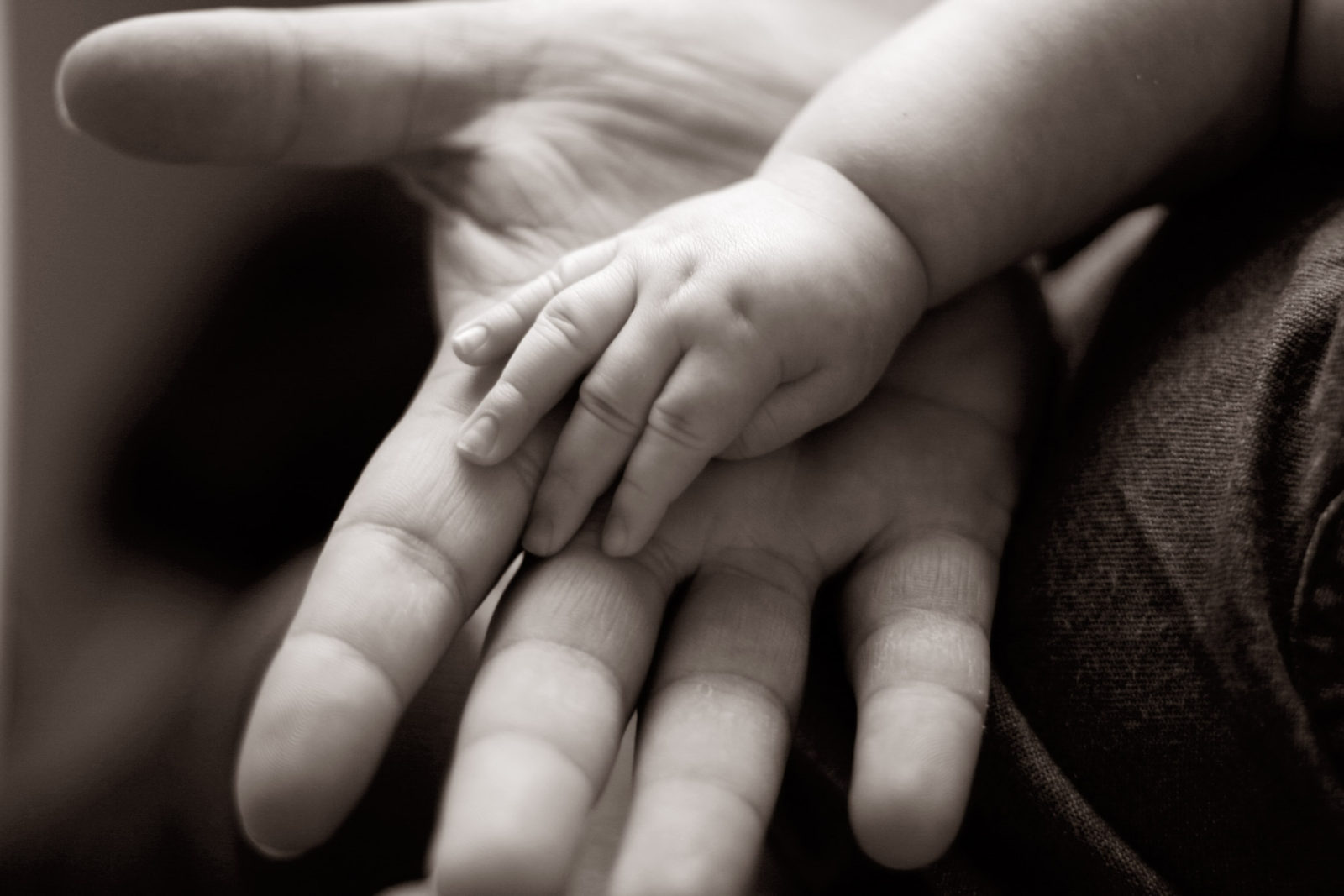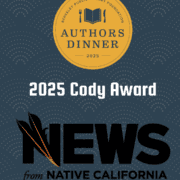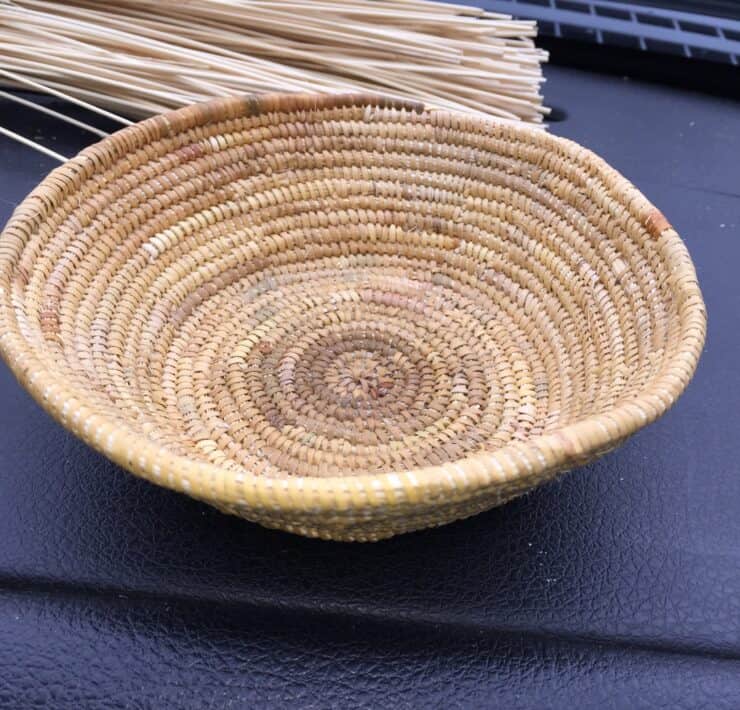
An interview with attorneys from Native American Rights Fund
By Terria Smith
The summer of 2022 has seen the erasure of Roe vs. Wade, the erosion of states’ rights to regulate concealed weapons, and the allowance of the State of Oklahoma to now prosecute crimes committed by non Native peoples on tribal territories in Oklahoma. All of these were determined by the Supreme Court Of The United States (SCOTUS). It has also been announced that in SCOTUS’s forthcoming term – which begins in early October 2022 – the Indian Child Welfare Act (ICWA) will also come under review with the Brackeen v. Haaland case.
Since 1978, tribes have been given primary jurisdiction over the removal of American Indian children and their placement in appropriate homes. Prior to ICWA many tribal children were taken away from their parents and extended relatives, which led to generations of young people being disconnected from their tribal nations and communities. Now with this case going to the Supreme Court, many fear a return to these troubling times. And even others sense that this might adversely impact tribal sovereignty itself.
ICWA is currently supported by tribal organizations, public entities, more than, members of Congress, and of course tribal nations. Leading the fight to oppose the overturning of ICWA is the Cherokee Nation, Navajo Nation, Oneida Nation, Quinault Indian Nation, and the Morongo Band of Mission Indians.
Attorneys on the case Erin C. Dougherty Lynch and Dan Lewerenz (Iowa Tribe of Kansas and Nebraska) interviewed with News from Native California to talk about the Brackeen v. Haaland case and discuss what is really at stake:
Over the years, there have been many challenges to ICWA such as the [Adoptive Couple v. Baby Girl] case some years ago. In your perspective, why do you think this particular case with the Dentons has gotten as far as it has all the way to the Supreme Court?
Dan Lewerenz: A lot of it is tied together. So, if you remember the Adoptive Couple v. Baby Girl case was decided in 2013. Justice Alito’s decision starts with, this is a case about a girl who’s 3/256th Indian, or something along those lines; one percent Indian. And which is a strange way to start the case because even if you accept that fact as true, that is not relevant to any of the legal issues that they determined. But from the way that he framed the case, through a lot of the things that he says in the case – including at one point saying that if we were to interpret ICWA in a way that disadvantaged Indian children that might raise equal protection issues, he says at one point. He was signaling where he thought constitutional challenges to ICWA might come from. And there were people who received that signal.
So in 2015, the National Council for Adoption – which is an industry organization that represents the big money adoption people – filed a lawsuit that challenged ICWA’s guidelines and kind of half-heartedly challenged ICWA itself as well, but more was about the guidelines. And later that year, the Goldwater Institute – which is this free market think tank down in Arizona – filed what was being characterized as a class action lawsuit on behalf of all the Native children in Arizona. Now, why the Goldwater Institute thought that it was the organization to speak on behalf of Native children in Arizona, who knows? But it was challenging the constitutionality of ICWA directly. Both of those lawsuits lost, and part of the reason that they lost was that there was deeply entrenched case law that said they were wrong. Part of it also was they were asserting at least one argument, an argument about state powers versus federal powers. But the court said, you know, you as private organizations aren’t really situated to make. This is an argument that the states can make when they feel the feds have stepped on their toes. But it’s a lot harder for a private party to make that argument.
So what happened here is the same lawyers that represented the National Council for Adoption back in that case went out looking for new clients and they found the Brackeens, this family in Texas. And they persuaded the State of Texas to join them. And so, you had a kind of a magical circumstance where you have a Supreme Court Justice who said, here are the issues that I want someone to bring to the court. You had a veteran Supreme Court litigator – the attorney for the Brackeens is someone who has argued and won many cases at the Supreme Court level – bringing the lawsuit and framing it in such a way that you know from day one they don’t care whether or not they win in the lower courts. They would like to. It’s easier that way. But the real goal is to get to the Supreme Court and change the law. And you have a state that’s joining them. That also kind of raises the stakes in the way the Supreme Court sees things. The Supreme Court doesn’t like to think of itself as just one more court of appeal out there to correct errors that lower courts have made. It sees itself as sitting in a very important position with respect to the structures of American government. And it resolves disputes between Congress and the Executive, it resolves disputes between the federal government and states. And because of the issues that are being argued, because one of the parties is a state, this was set up to get the Supreme Court’s attention.
And then so the last part of that is, the Supreme Court almost never lets a lower court have the last word on the constitutionality of an act of Congress. If someone’s going to say that Congress overstepped its bounds, the Supreme Court feels like it needs to have a say in that. That it shouldn’t let a lower court speak to Congress that way. So once the lower court agreed in at least some of the issues with the plaintiff, and said that ICWA was unconstitutional at least in some aspects, the Supreme Court was pretty much guaranteed to take the case.
And so that’s how we get here. That’s why the issues here are so different than they were in Adoptive Couple. Adoptive Couple really was about how to interpret parts of the statute. This case really is about bringing the entire statute down. And if the plaintiffs have their way, bringing all of Indian law down.
That was going to be my next question, and it actually is. I’ll ask it anyway. It is my understanding from my former interview [in 2019] with Chairman Martin and the attorneys from Morongo that an unfavorable ruling has the potential of possibly unraveling other issues or tribal sovereignty as a whole. So, I was going to ask if this was in fact accurate. And if so, what would that look like? What other aspects of sovereignty are going to be impacted?
Dan Lewerenz: It really depends on how the court decides this. Let’s take a step back for a second. Broadly speaking, there are four different constitutional issues that the plaintiffs raised. Now, each of these have some sub-arguments to them. So, I’m just going to describe them on a more general level and I’ll kind of answer your question from there.
One is the reason that Texas appearing makes this case a little more tangible for the court is what the court calls anti-commandeering. This idea that Congress can enact its own federal policies, but it can’t make the states carry out federal policies. It has to do things itself. Congress wants to get things done, that’s what it has an executive branch for.
The second is sort of a strange variation on something the court calls the nondelegation principle, which says that Congress cannot give its lawmaking powers away to someone else. And usually you hear this in the context of executive power, of concerns that Congress has given the executive too much authority to make law instead of just carrying out law. Now in this case, it’s a little bit crabbed because what the plaintiffs are saying is that there’s one little section of ICWA – the section that says that ICWA has its own placement preferences, right – and it’s the section that says that if a tribe has its own placement preferences that those would supersede ICWA’s. The plaintiffs say that that means tribes have the power to rewrite federal law. And that’s silly. It just means that, just the way that state courts have to respect the laws of other states and states have to respect tribal laws, that if a tribe enacts placement preferences into tribal law the state has to respect those also. But that’s the second constitutional argument, this delegation thing.
The third one, and the one that probably gets the most attention, is equal protection, their argument that ICWA operates on the basis of race, and that ICWA effectively divides the world into two racial categories: Indian and non Indian. There are Indian children and non Indian children. Indian children are covered by ICWA, non Indian children are not. There are potential Indian adoptive families and there are non Indian potential adoptive families. And according to the plaintiffs, those non Indian families are at a disadvantage. The plaintiffs use this racial lens to argue that ICWA violates the federal and constitutional law against racial discrimination.
And then the fourth constitutional question has to do with Congress’s powers. The plaintiffs say that Congress is only allowed to regulate commerce with Indian tribes, and they want to define commerce very narrowly to involve only economic activities, business activity. And they very glibly then say that Indian children are not commerce. While the federal courts have read the Indian commerce clause differently for the entire 200 plus years that we had an Indian commerce clause to say that commerce involves the entirety of intercourse of deadlings between Indians and non Indians, between tribes and the United States, the plaintiffs want to write this narrow version of the Indian commerce clause.
So, when you ask the question ‘What would the implications of a ruling against ICWA be?’ that depends on the grounds for the ruling. If the court was to say that ICWA violates that anti-commandeering principle that would be a bad decision and something that we do not want. It would be very wrong. But in some ways that wouldn’t be the worst possible outcome because a number of states have enacted their own Indian child welfare laws. And those laws would not be disrupted by that kind of constitutional rule, right? If the ruling is Congress can’t tell the states what to do, then that has no effect on what the states decide for themselves. If on the other hand the ruling has to do with equal protection – and here’s where we get into a lot of sub-arguments to this equal protection position – then it depends on exactly why the court says that ICWA operates on racial basis.
In the broadest possible approach to this, the plaintiffs say that even things based on tribal membership are racial because tribal membership is effectively an inherited quality, it is something that passes down from ancestry. And if it passes down from ancestry, the plaintiffs say, then it’s racial. And if everything that is based on tribal membership is now racial, then it has to meet the very strict requirements of race-based statutes. Then all of Indian law might be at risk.
The same way, if the court says that Congress’s power is limited to economic activity then we kind of have to start going through federal Indian statutes one-by-one and asking that question. You know, the Indian Gaming Regulatory Act, that’s probably a regulation of commerce. Right? People going onto tribal lands to engage in what looks like a commercial activity, maybe that passes the test. But what about special rules for tribal inheritance, which is something that would normally fall under state law. If the Indian Child Welfare Act isn’t sufficiently commercial. Well, we might have to ask what else might not be sufficiently commercial. And the potential for the unraveling of a lot of federal Indian policy.
Erin C. Dougherty Lynch: Just to kind of add on to what Dan was saying, I was just kind of struck listening to Dan lay this all out about how many arguments are present in this case. And I think the question you asked is a very direct one, and unfortunately the answer isn’t as direct or concrete as it normally is. At least in my opinion, where cases or statutes are kind of challenged like this.
When federal statutes are challenged, there are usually one or two grounds, or sort of sub-arguments that plaintiffs are arguing. And this case is unique for so many reasons, one of which is that there are so many constitutional doctrines and issues/arguments at play. The folks that are challenging ICWA, it’s like everything they could think of they’ve thrown at the wall. And when the United States Supreme Court accepted the case, it just granted the four cert petitions before it. It did not limit the questions. And so, I think that’s one of the reasons that the sort of answer that Dan gave, there’s not really a straightforward answer because there are so many constitutional doctrines and issues at play. Because of that and what the court decides it could come down any number of different ways and effect broader tribal sovereignty issues innumerable ways.
As Dan said, you know, the arguments certainly when it comes to non delegation we think the rights that tribal advocates and the Department of Justice are right on the law on all of the issues. Precedent supports our positions. But there are some of the arguments that plaintiffs are making that are quite dangerous to federal Indian law as a whole. So as Dan mentioned, these equal protection challenges where the plaintiffs are arguing that ICWA is sort of a race-based law. You know, we all understand ICWA, and Congress understood ICWA, and the courts in the last 42 years have understood ICWA to be a law that is grounded in the political relationship between member children and their tribes and the political relationships between tribes and the United States government. There’s nothing racial about it.
That’s one of the things that people find so dangerous. If ICWA is found to be a race-based law, it makes much of federal Indian law vulnerable to the same challenge.
As Dan mentioned, the other piece that is very dangerous are these commerce clause challenges. So Congress has the authority under the Indian commerce clause of the United States Constitution to pass a variety of statutes related to Native people and tribes. One of the most extreme arguments – probably the most extreme argument – that the opposition is putting forward is that the commerce clause really limits Congress in a very severe way to only things that would sort of be explicitly commerce and nothing else including health, education, welfare, that sort of thing. So again, that is a challenge that could – or an argument, I should say – that could have an enormous impact on the field of federal Indian law if the court goes in that direction.
My next planned question, you had answered it earlier Dan, when you talked about the entities that are responsible for challenging ICWA: The Goldwater Institute and also the National Council for Adoption. So that one was ok. I can understand what their motivation might be if they are a for-profit entity concerning adoption.
Dan Lewerenz: They have an amicus brief in support of the plaintiffs in this case. There’s a brief basically from the adoption industry saying ICWA’s bad because it hurts our business.
For them it is a business. There are people who are challenging ICWA because they will make more money if they can sell Indian kids. And that sounds crass to put it that way, but we’re not the ones being crass. We’re not the ones selling Indian kids. They’re the ones who are trying to sell Indian kids. And the more kids they can get in their market, the more money they will make. That’s why they’re in this case.
The Brackeens themselves, I have no reason to think that they have any ties with that industry. They came at this from a particular place. They wanted to adopt a particular child. But the attorney that they hired to represent them is an attorney who was making money from representing the adoption industry. And for the interests bringing this case it is about money.
Erin C. Dougherty Lynch: To sort of build on Dan’s point, I think just learning a lot by looking at who is filing on behalf of ICWA and in opposition. So as Dan rightly brings up that amicus brief that has gone in again on behalf of adoption attorneys and the private adoption . Contrast that with a brief that has been filed a number of times in this case spearheaded by Casey Family Programs. And in this case, there have been 30 plus of all of the leading child welfare organizations in the country, these are the folks that are deeply involved in child welfare systems, in advocating for foster youth, and making sure that children are protected and receive the best possible care if they are removed from family and placed into state custody. And so those folks, whose business is the best interest of children and child welfare, they have come in on behalf of support of ICWA, consistently starting, actually since back in the Baby Girl case, there was a brief filed by child welfare advocates. And in every step of this case, they have filed briefs accordingly as well. And so you can visually look at who is filing in support of each side, it kind of tells that story.
We as tribal people have a number of concerns with this. Is there any reason why non Native people might have cause for concern in this case?
Dan Lewerenz: None whatsoever. And this is one of the myths about ICWA. I will call it a myth when it’s in the sort of public sphere because a lot of people just don’t understand. It’s a lie when it comes from the other side, because they know better and they just lie. The lie, the myth, is that ICWA discriminates against non Indian potential adoptive parents. But it does not. It does not say that only Indians can adopt Indian children. ICWA, in its first round of preferences, says that the child’s family – the preference is that the child stays with their family. And at that stage it does not differentiate between Indian and non Indian family. And in some of the most famous ICWA cases that get all the news coverage in where people say that the child is being torn away from a foster family or whatever, in many of those cases the child is being placed with a family member and sometimes a non Native family member. But what’s important is the child is staying with their family. The second preference is that the child stays with a member of their tribe. And the third one with a non Indian family. But meeting the preferences isn’t always possible. I think that you are going to see in this case support from non Native families who have adopted Indian children after all of ICWA’s requirements have been met. And they are going to be saying ICWA did not prevent us from adopting this child or from making a family. ICWA just made sure that every effort was made at every step to think about what’s in the child’s best interests.
So no, non Indian parents have nothing to fear. And lots of Indian children are being adopted by non Indian families, are being fostered with non Indian families, even when ICWA is being followed in all of its requirements.
Erin C. Dougherty Lynch: Just an illustration of that from what I have seen in my practice up here [in Alaska] is that I think sort of baked into a lot of these narratives, or myths, or straight up lies – as Dan mentioned – about ICWA is some inherent distrust of tribes. That’s just rooted plainly in racism. And people who fear or criticize ICWA and sort of feed this narrative that it discriminates against non Native folks, they are doing that partially because they inherently do not trust tribes. And I say that because ICWA provides, as Dan was saying, one of the placement preferences is a family that the tribe identifies. Also, this comes up in potential transfer to tribal court where then the tribal court is making a determination on where the child is being placed. I have seen cases up here where the tribe, in both of those instances, has designated a non Native family as the best placement for that child. And they have done that because the tribe knows the non Native family. The family maybe lives in the community. The tribe knows them well, thinks that they would be excellent foster parents, and would also foster the relationship between the tribe and the child in recognition of the child’s membership in the tribe. So, I’ve seen numerous examples of tribes identifying non Native families as a good placement for their tribal children. And so these criticisms that you hear, of oh this is discrimination or sort of anti-folks-who-aren’t-Native, it’s also just not true in practice. As Dan was saying, the first tier placement preference is for a member of the child’s family. That does not always mean a Native person. And so just from the very beginning that narrative is not true. But even further down the placement preferences it’s not always true that a tribe will think that the best placement is with a Native family.
And so there are just all of these nuances that the opposition either doesn’t know, or does not care to engage in, or knows but ignores in order to feed this narrative that is anti-tribe and based in racist views.
If you are part of an organization that would like to sign on to the National Indian Women’s Resource Center’s amicus brief for Brakeen v. Haaland visit https://www.niwrc.org/news/action-alert-sign-amicus-brief-brackeen-v-haaland
*The deadline to sign on is August 5, 2022*
To support Native American families, visit the National Indian Child Welfare Association’s website at nicwa.org
To support Native American Rights Fund with this case, visit https://www.narf.org/support-us/
To raise awareness about this issue on social media, visit instagram.com/protecticwa/ or twitter.com/ProtectICWA
Full disclosure: The writer of this piece has a personal connection to this issue as her family was adversely impacted by foster care practices that took place prior to the inception of the Indian Child Welfare Act.









